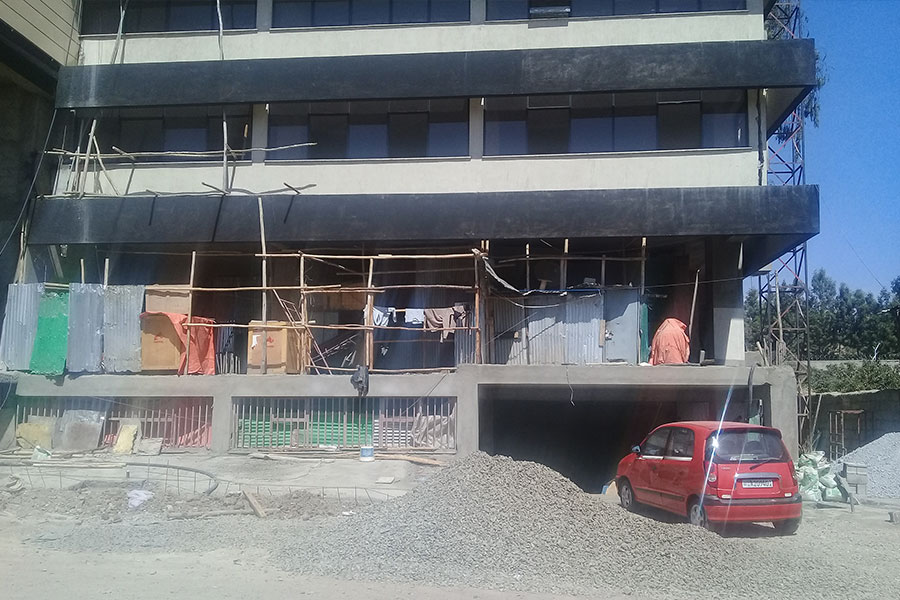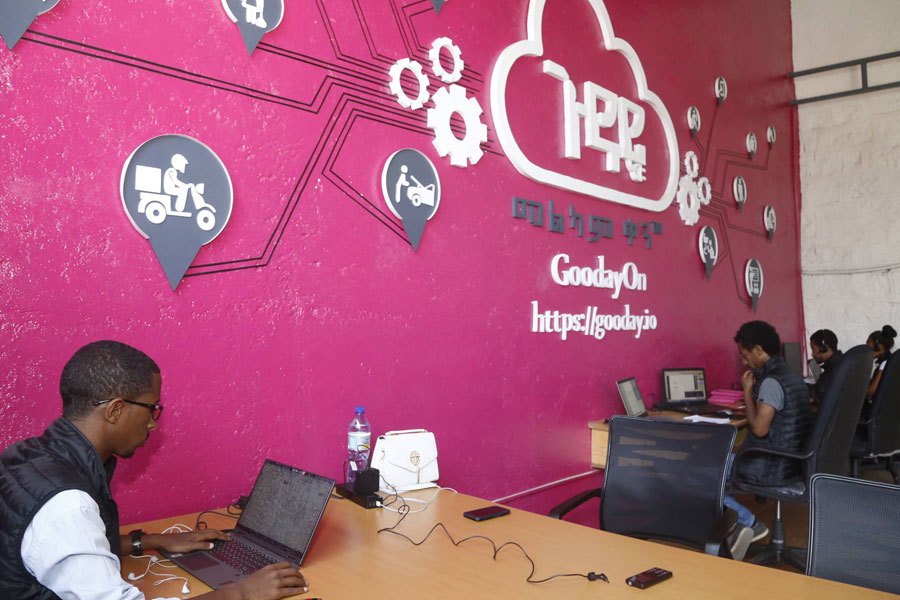
Mr. Melaku Alebel, Minister of Industry, Federal Democratic Republic of Ethiopia, and
Mr. Paul Akiwumi, Director, Division for Africa, LDCs and Special Programmes, United Nations Conference on Trade and Development (UNCTAD)
Ethiopia’s recent development strategy has yielded some important achievements. The country has achieved rapid economic growth and aims to become a lower middle-income country by 2025.
To achieve this, the government has deployed industrial policy and a sector-driven strategy, designed around
developing agricultural productivity, manufacturing, and exports of cut flowers.
This strategy has delivered impressive GDP growth, averaging 10 per cent per year in the 15 years up to 2019, among the highest rates in Africa. Rapid growth contributed to a steady reduction in poverty, down to 24 per cent of the population by 2019.
Nevertheless, other development objectives remain elusive. Despite the construction of industrial parks and other turnkey investments, manufacturing output has yet to grow as planned.
Although agriculture’s share of GDP has fallen, it remains the main source of livelihood for much of the population. And the country continues to rely on exports of agricultural commodities and gold, which generate little added value or transformation.
Absent the anticipated transition to more productive activities, GDP per person has grown at a slower rate than the overall economy
An updated strategy for sustainable development
These trends suggest that Ethiopia needs to tinker with its strategy to drive the productive transformation of the economy and achieve an inclusive and sustainable growth path.
Ethiopia already has two important elements in place: a strong industrial policy, which orients incentives towards
priority sectors and investments and, since 2012, steady inflows of foreign investment.
Where it may fall short is in delivering the productive capacities that entrepreneurs and investors require to establish a business, produce and trade more value-added goods and services.
Productive capacities include inputs necessary for business operations, such as skilled workers, energy, transportation, and ICT services. The availability and quality of these inputs influence whether a firm can
compete, innovate and grow.
Similarly, an economy’s “soft” productive capacities – such as institutions, the ease of doing business and the state’s ability to allocate resources – influence the feasibility of investing in new, more productive industries.
According to UNCTAD’s Productive Capacities Index (PCI), Ethiopia had overall score of 23.53 in 2018, ranking 169th in the world.
Relative to other economies in sub-Saharan Africa, Ethiopia scores better on PCI components such as human capital, transport, and structural change. But it lags on capacities related to institutions, energy, ICTs and the private sector business environment.
With its recently adopted Ten Years Perspective Development Plan (2021 – 2030), the Government of Ethiopia aims to address some of the gaps in productive capacities and structural economic transformation. The plan also incorporates a policy shift from government- to private-sector-led development.
Private sector development is crucial
Fostering private sector development will be crucial as the implementation of the African Continental Free Trade
Area (AfCFTA) progresses. Expanding intra-African trade being a key objective of the AfCFTA, many new opportunities generated by the agreement will flow through cross-border trade and regional value chains.
Attracting new regional investment flows will depend, in part, on Ethiopia’s ability to build professional, independent public agencies that ensure a conducive business environment, by improving access to finance, enforcing contracts and establishing clear and coherent rules and procedures.
Furthermore, reducing the time and cost required to procure land, credit and permits will improve the competitiveness of Ethiopian firms in entering new markets and industries.
Given Ethiopia’s recent experience with rapid but vulnerable growth, the country must also redouble its focus on building human capital, in the form of a critical mass of skilled workers.
As well as being a crucial input in more productive industries, skilled jobs are an important channel in combating inequality and achieving inclusive socio-economic development.
Skilled jobs typically offer better pay, more protections and benefits. They give workers the means to access nutritious food, health and education services, housing, and utilities. Successful human capital development programmes therefore offer a triple-win: for workers, employers, and the national economy.
Along these lines, Ethiopia can address some of the gaps in its development strategy by focusing on building
economy-wide productive capacities, towards structural economic transformation and a more sustainable,
inclusive development.
PUBLISHED ON
Mar 03,2022 [ VOL
22 , NO
1140]

Fortune News | May 23,2021

Fortune News | Jun 10,2021

Radar | Dec 19,2021

Radar | Dec 25,2021

Featured | Oct 23,2021

Dec 22 , 2024 . By TIZITA SHEWAFERAW
Charged with transforming colossal state-owned enterprises into modern and competitiv...

Aug 18 , 2024 . By AKSAH ITALO
Although predictable Yonas Zerihun's job in the ride-hailing service is not immune to...

Jul 28 , 2024 . By TIZITA SHEWAFERAW
Unhabitual, perhaps too many, Samuel Gebreyohannes, 38, used to occasionally enjoy a couple of beers at breakfast. However, he recently swit...

Jul 13 , 2024 . By AKSAH ITALO
Investors who rely on tractors, trucks, and field vehicles for commuting, transporting commodities, and f...

Jun 28 , 2025
Meseret Damtie, the assertive auditor general, has never been shy about naming names...

Jun 21 , 2025
A well-worn adage says, “Budget is not destiny, but it is direction.” Examining t...

Jun 14 , 2025
Yet again, the Horn of Africa is bracing for trouble. A region already frayed by wars...

Jun 7 , 2025
Few promises shine brighter in Addis Abeba than the pledge of a roof for every family...